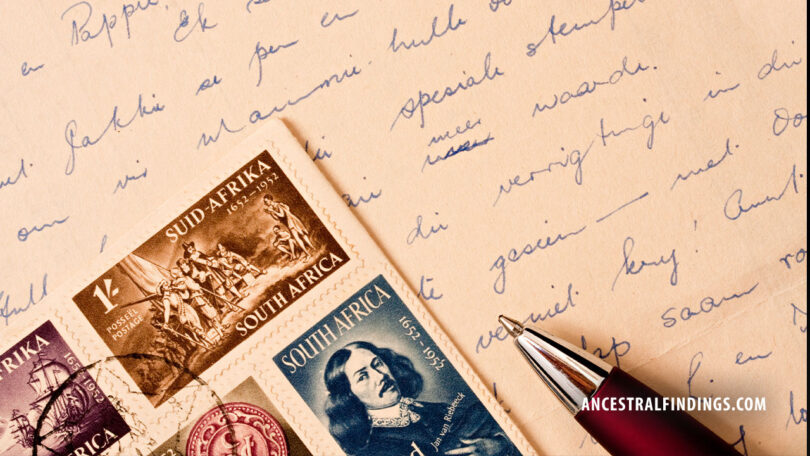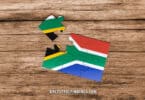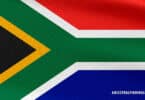What’s in a name? Well, in South Africa, quite a lot! Surnames carry the stories of ancestors, cultures, and the complex history that shaped this incredible country. Whether your last name is Van der Merwe, Mbatha, Patel, or even Botha, understanding its origin can unlock a treasure trove of genealogical clues. Let’s dive into some of the most fascinating aspects of South African surnames and have some fun while we’re at it!
The Cultural Mix
South Africa is known as the “Rainbow Nation” for a reason: its people come from a variety of backgrounds, including indigenous African tribes, European settlers, Indian laborers, and even Chinese immigrants. The surnames that arise from these different groups reflect their unique cultural stories. Knowing a surname’s origin can provide insight into your family’s place in South Africa’s diverse past.
Let’s break down the main cultural groups and explore their surnames:
1. Indigenous African Surnames
Indigenous African surnames are often poetic and meaningful and reflect family heritage or clan origins. Surnames like Zulu, Xhosa, and Sotho often relate to the tribe or group a person hails from.
- Mbatha: This Zulu surname is associated with strength and leadership. Many Zulu surnames, like Mbatha, carry meanings connected to animals or natural elements, showing the deep connection between people and the environment.
- Dlamini: One of the most common Zulu surnames, Dlamini is linked to royal heritage in the Swazi culture.
- Ngcobo: A Xhosa surname that can be traced back to early tribes and carries with it the people’s history.
Did you know that in many African cultures, surnames are often passed down from generation to generation to preserve tribal lineage? The surname can tell a story of where the family comes from and what qualities were admired in that tribe.
2. Afrikaans Surnames
The Afrikaans population descends from Dutch, French Huguenot, and German settlers who arrived in the 1600s and 1700s. Their surnames reflect this European heritage, often incorporating place names or occupations.
- Van der Merwe: This classic Afrikaans surname means “from the Merwede,” a river in the Netherlands. If your ancestors were Van der Merwes, they were likely early Dutch settlers. The surname reflects their European origins and connection to the land.
- Botha: Derived from the German word Bothe, meaning “messenger,” this surname has deep roots in South Africa’s history. Fun Fact: It’s also the surname of one of South Africa’s first presidents, Louis Botha.
- Du Plessis: Originally a French Huguenot surname, Du Plessis means “from the place of Plessis.” French settlers came to South Africa in the 1600s to escape religious persecution, and many of their surnames can still be found in the country today.
3. Indian Surnames
Indian immigrants came to South Africa in the 19th century as indentured laborers working in sugar plantations. Many surnames from this community reflect the caste or occupation of the individual’s ancestors.
- Patel: A common Indian surname in South Africa, Patel means “village headman.” It often indicates that the ancestors were leaders or landowners.
- Naidoo: This surname originates from Tamil Nadu in southern India and is connected to families with a long history of community leadership.
Many Indian surnames reflect ancient roles or positions of leadership, often indicating that your ancestors were people of great responsibility.
4. English and British Surnames
With the arrival of British colonists in the early 1800s, many English or Scottish origin surnames became prominent in South Africa. These surnames are often straightforward and rooted in professions or geographic locations.
- Smith: A surname as common in South Africa as it is in Britain, it indicates that the family likely worked as blacksmiths at some point in their past.
- Green: This surname might refer to an ancestral family who lived near a village green or grassy area.
- Campbell: If your surname is Campbell, you may have Scottish roots. The Campbells were one of the most powerful clans in Scotland, and many settlers with this name arrived in South Africa during the British colonization period.
5. Chinese Surnames
Chinese immigrants have had a small but significant presence in South Africa since the 19th century. Chinese surnames in South Africa typically follow the traditional pattern of a single-character surname, often denoting lineage.
- Wang: One of the most common Chinese surnames worldwide, meaning “king” or “monarch.”
- Chen: A surname that traces back to a powerful clan in ancient China, often associated with leadership and scholarship.
Your Surname’s Hidden Message
Many South African surnames have meanings related to family roles, ancestral duties, or even physical characteristics. Discovering the meaning behind your surname can give you a deeper connection to your heritage.
For example, if your surname is Van der Westhuizen, it literally means “from the house in the west.” This indicates that your ancestors likely came from a western region in Europe before settling in South Africa. Similarly, the surname Naicker is of Indian origin and refers to a leader or ruler within a village.
Some surnames, particularly among indigenous communities, are passed down through matrilineal lines, reflecting the important role of women in family lineage.
Why Surnames Matter in Genealogy
In South African genealogy, surnames are often the first key to unlocking family histories. Understanding the origin of your surname can help you locate historical records, find family connections, and even trace your ancestors back to their homeland.
When conducting genealogical research, here are some tips for using surnames to your advantage:
Know the Language: Many surnames in South Africa come from Dutch, French, Zulu, or Tamil roots. Knowing the language or culture behind the name can help you interpret old records and understand the significance of certain name changes.
Watch for Spelling Variations: Surnames may have been altered or misspelled over time, especially during colonial periods. If you’re hitting a brick wall in your research, consider that your surname might have been written differently in historical documents.
Look for Patterns: Certain surnames are common in specific regions of South Africa. For example, you’re more likely to find Dutch surnames in the Western Cape, while Zulu surnames are common in KwaZulu-Natal.
Don’t Forget Maiden Names: In many cultures, women’s surnames may have been recorded under their maiden names. Always check for variations in how women were documented in church and civil records.
Wrapping It Up: What’s Your Story?
Surnames are more than just labels; they link to your past and reflect your ancestors’ experiences. Whether your family came from Europe, Africa, India, or beyond, understanding the origins of your surname can offer fascinating insights into where you come from.
So, the next time someone asks, “What’s your last name?” you can respond with more than just a word—you can tell them the story behind it.
Read More:
First Fifty Years Project: A Guide to Researching Early South African Ancestors
This ongoing digital project (available online but mentioned in many genealogical circles) focuses on the first 50 years of European settlement at the Cape. It’s invaluable for those with Dutch, French, or German settler roots.
History of South Africa by Leonard Thompson
While this is not strictly a genealogical book, it provides a comprehensive history of South Africa, helping genealogists place their ancestors in the broader historical context.
The Anglo-Boer War 1899-1902: A Pictorial History by Fransjohan Pretorius
If your ancestors were involved in the Anglo-Boer War, this pictorial history offers invaluable insights into the people and events that shaped the country during this time. It can add historical depth to your genealogical research.







